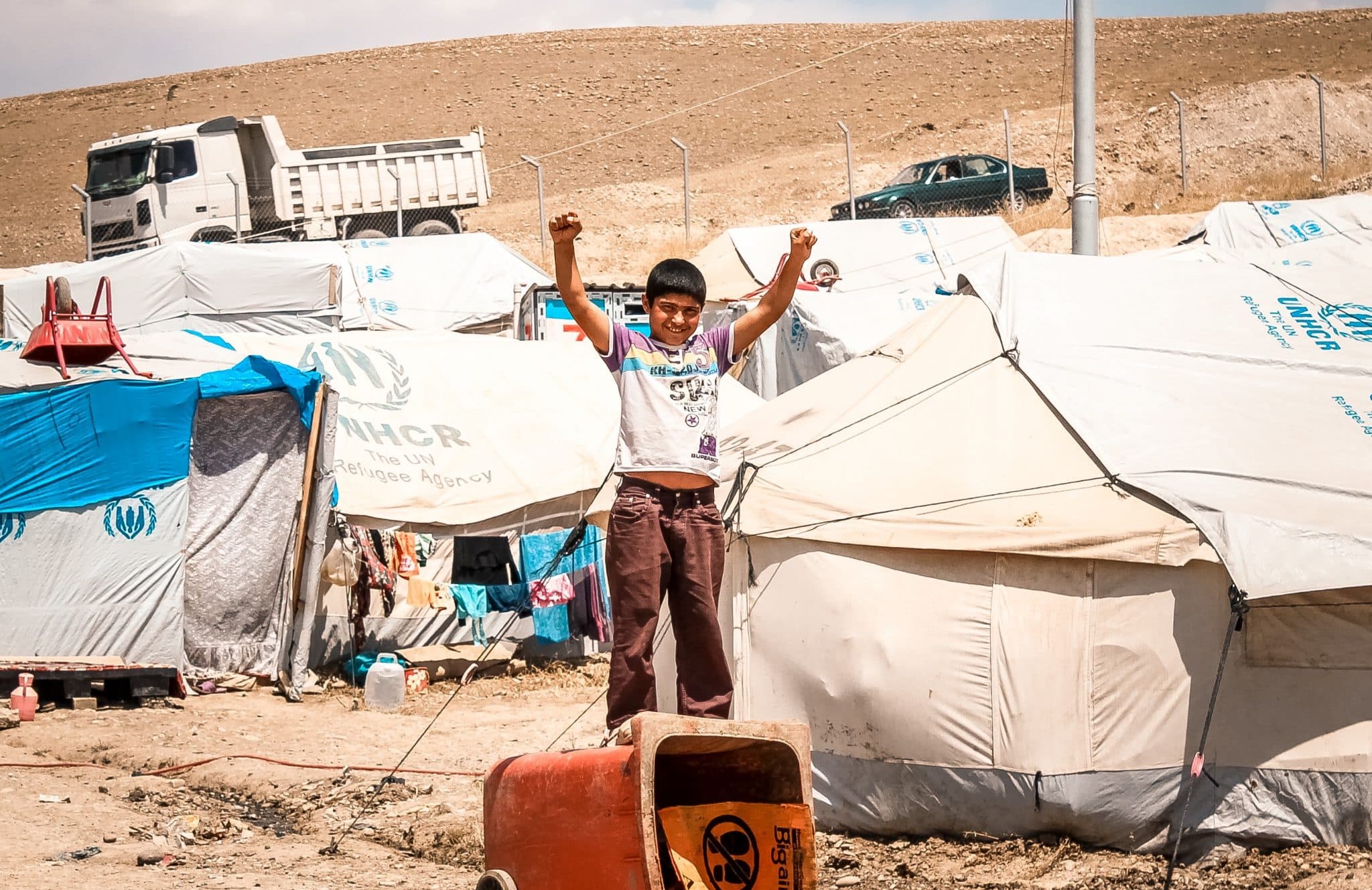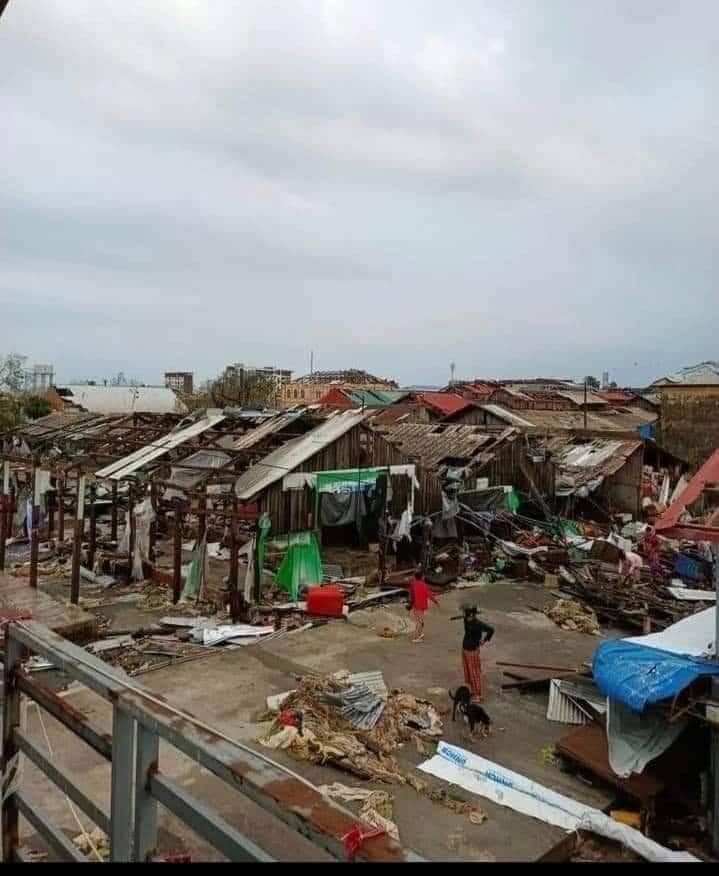From lawyer to “kopi lady”, why this millennial gave up the corporate life
by Christine Leow // January 15, 2021, 9:17 pm
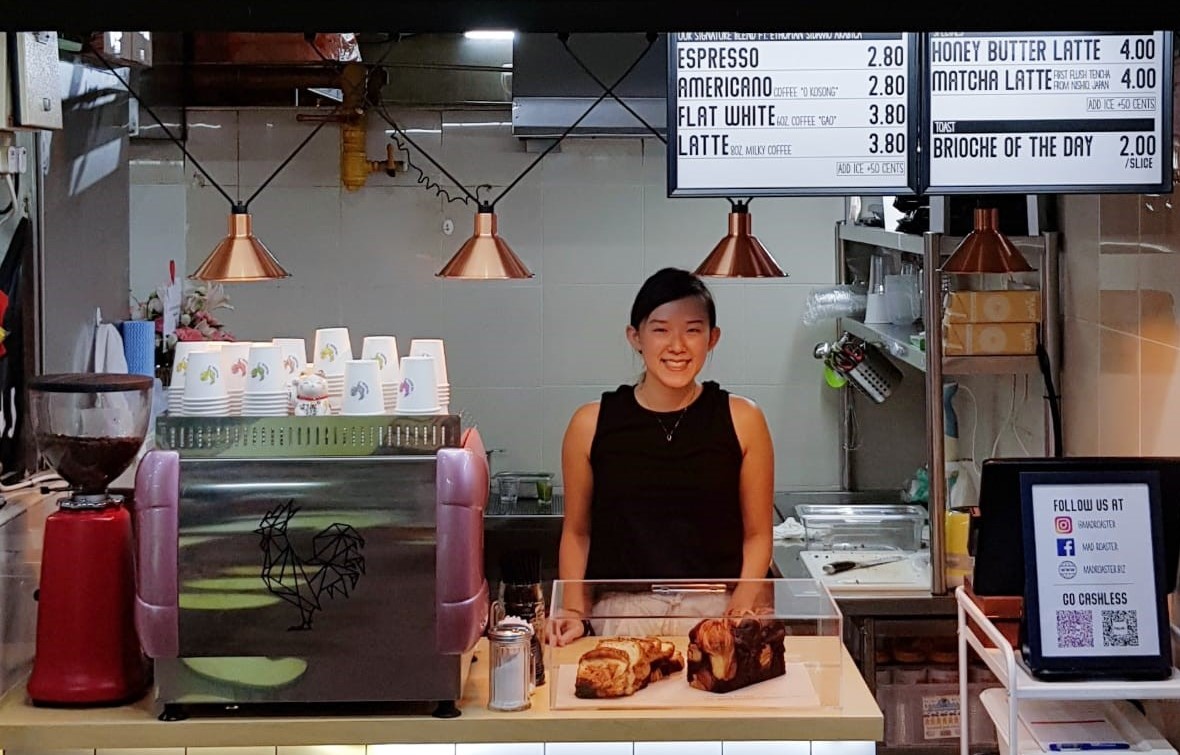
Madeline Chan was a lawyer in a leading law firm in Singapore when she quit to take up a job providing legal aid to refugees in Thailand. All photos courtesy of Madeline Chan.
Walk through Amoy Street Food Centre as the sun rises over the CBD and you will come across a somewhat surprising sight. Among the ageing aunties and uncles opening up their hawker stalls is a 20-something who has recently joined the fray.
Madeline Chan is the fresh-faced, 27-year-old owner of hipster coffee place Mad Roaster. “My nickname in school used to be ‘Mad’, short for Madeline, and ‘Roaster’ is because of our roasted coffee beans.”
At the second-storey stall, the breakfast staple of coffee and toast has been given a modern spin. Chan offers espresso-based cuppas, with a side of fresh-baked brioche and babka in slices or loaves.
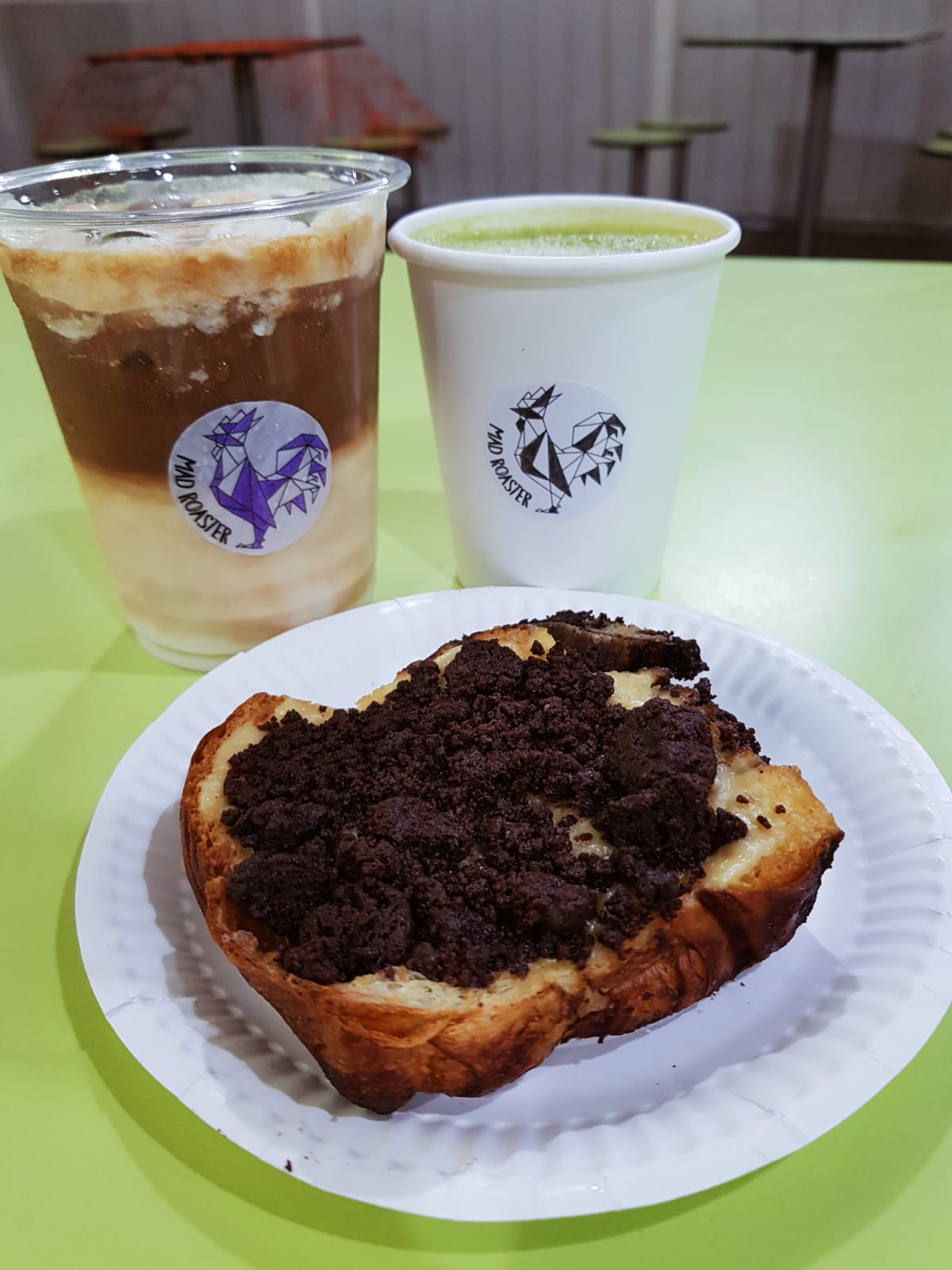
Breakfast with a conscience is what Mad Roaster is all about. Chocolate babka slices are topped with custard and a crumble, both from a recipe Chan developed herself. She pays refugees to hand colour the stickers that adorn each cup and accompanies each loaf of bread.
But this is no millennial hawker eager to reinvent the local food scene. Chan set up shop in November 2020 (yes, amidst Covid-19 restrictions and while the nation was still coming to terms with working from home) to provide work for refugees.
Each cup of coffee comes adorned with a sticker of a geometric rooster coloured by hand by a refugee. Each loaf is accompanied by a tag with the same rooster logo, also hand-coloured, and the personal story of the refugee who worked on them.
For every logo coloured, the refugee is paid S$0.50.
But how did a young Singapore girl get involved in back-breaking, heart-aching refugee work?
Hunger and thirst for justice
Chan’s story began nearly a decade ago. A graduate of the London School of Economics (LSE), she had always had an altruistic bent. She chose to read law because she “wanted to do something that would help people”.
Upon graduation, she got a job at one of the leading law firms in Singapore. For four years, she worked as a corporate litigator managing legal disputes of MNCs.
But there was a disquiet in her soul.
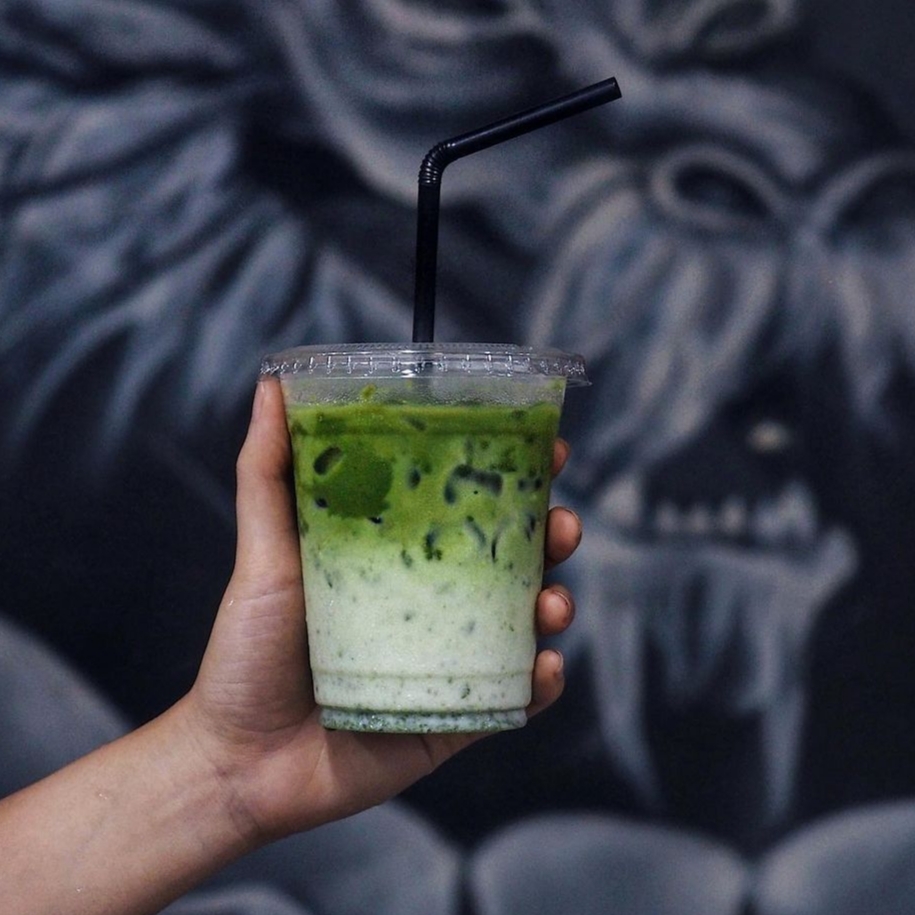
Matcha latte is one of Mad Roaster’s signature blends. The designer brews Chan offers start from just S$2.80.
“When I chose law, I imagined it being a way to help people. But these MNCs already have their own legal team, their own strategy. They only need a litigator to bring their disputes to court. There didn’t seem to be real meaning or purpose for me.”
She realised that it was “not just your own justice but justice for others as well” that God desired.
Then, she suffered an injustice at work, the details of which she shared with Salt&Light but asked not to be revealed. While she sought for the wrong to be made right, Christians at her workplace urged her to forgive the offender.
Said Chan, who is Catholic: “I’m a Christian but I was made to feel very un-Christian in my choices. I felt like I was being vindictive. I didn’t know how to justify things.
“So, I looked to the Bible and I came upon the Beatitudes that talked about blessed are those who hunger and thirst for justice for they shall have their fill (Matthew 5:6).”
She “clung on to verses about justice because the situation lasted very long and it was hard to go to work every day”. As she meditated on the verses, she realised that it was “not just your own justice but justice for others as well” that God desired.
In 2018, she set about looking for a way to help people who truly needed the kind of justice the Bible talked about.
Leaving family and home
It was around that time that the plight of the Rohingya people made the news and it caught Chan’s attention.
“I did get scared. I would have less money. I would be leaving my boyfriend behind.”
Hundreds and thousands of the ethnic minority who had made their home in Myanmar since as early as the 12th century had fled to neighbouring Bangladesh after local troops burnt their villages and attacked them in August of 2017.
Nearly 7,000 Rohingyas were killed including at least 730 children under the age of five.
“There was no work in Singapore that had to do with refugees because there are no refugees here to serve. So, I looked elsewhere.”
Because she would have to leave her investment counsellor boyfriend, now fiancé, behind, Chan knew that she had to limit her search to within Asia. In the end, she found work with a non-governmental organisation in Bangkok called Centre for Asylum Protection.
In 2019, Chan left her law firm, her family and her 30-year-old boyfriend, Nicholas Ng, to venture alone to Thailand.
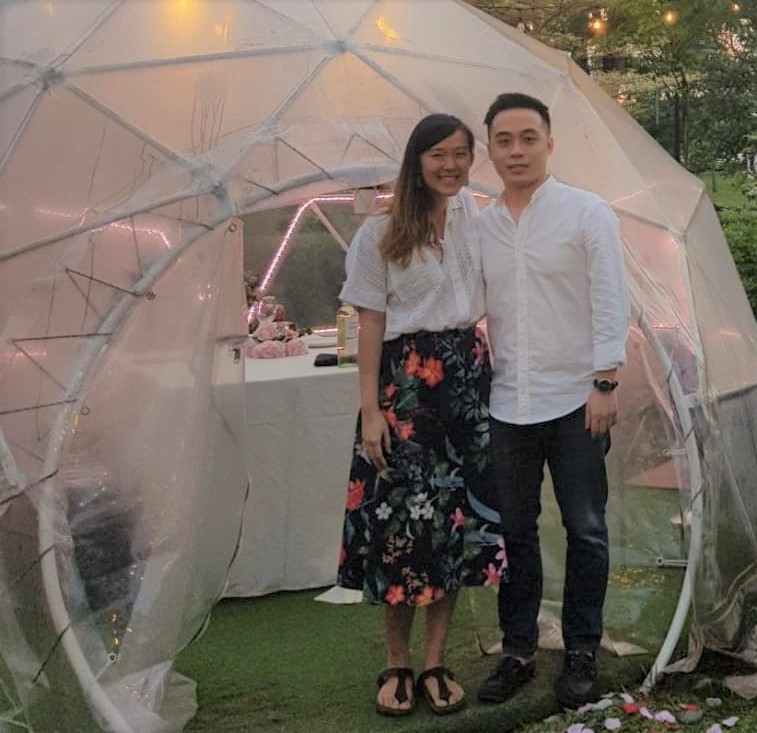
Chan left behind her boyfriend whom she met while studying at LSE to work with refugees. He proposed to her when she returned after a year.
“I did get scared. I would have less money. I would be leaving my boyfriend behind. But I prayed, ‘I will go and trust that I will only gain, I won’t lose because this is for You. If I lose, something new and better would come along’.”
“If you say you’re a Christian, they may test you.”
In Bangkok, Chan helped the displaced apply for refugee status with the UNHCR (United Nations High Commissioner for Refugees).
“Many of them are Vietnamese Christians who had to flee from their villages because they were accused of being anti-Communist and charged with treason.
“The application process is actually quite easy. But because the questions are difficult, they get rejected and we help them with the appeals.”
Citing examples of the rigour involved in the interviews to ascertain the credibility of the refugees’ claims, Chan said: “If you say you’re a Christian, they may test you on what the 10 commandments say. These villagers don’t know it. Theirs is a simple faith. They know that Jesus loves them and Jesus saved them.
“Or if you say you were arrested, they will ask you for details like the layout of the police station. If you can’t remember these facts, you’ll get rejected.”
A heart for the hurting
For a year, Chan worked with one of the two legal clinics in the city for refugees. Between them, there were only about six lawyers serving some 9,000 refugees.
Every client Chan saw had a story that broke her heart.
One man who came to her for help had become a refugee because he was a Christian and had refused to renounce his faith. Authorities stormed his home and attempted to take everything inside.
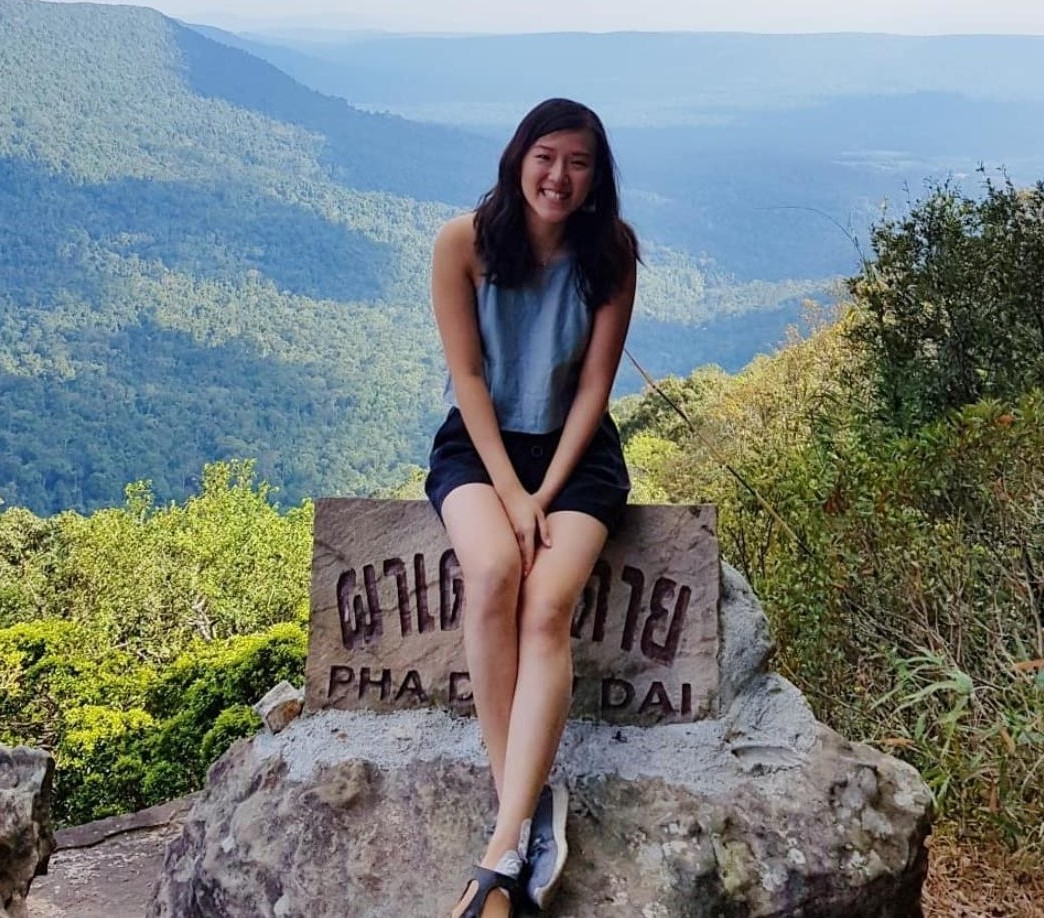
Working in Bangkok with refugees gave Chan a front-row seat to the sufferings of the displaced people and that compassion gave her a better understanding of God’s love for them.
When his wife and mother tried to stop them, they ran over the women with their vehicles. His wife, who was pregnant, lost the baby and his mother hit her head and became mentally unsound.
“Now they have to tie her up so she won’t go out because she would wander away and throw rocks at cars. That is how they live in Thailand,” said Chan.
Then, there was the woman who had been raped by a community leader in the refugee camp and had assumed no one would believe her because she was a woman and he was in a position of power.
Each tale of woe gave Chan a deeper understanding of God’s heart.
“You know the song that goes ‘break my heart for what breaks yours’? As my heart broke when I heard the stories, I felt a little bit of how God must feel because surely God’s heart must be breaking.
“It made me realise how small my faith is compared to theirs.”
“I had been completely blind before. I hadn’t known there were so many who were hurting. So, I felt closer to Him because I was sharing in His sadness.”
In the midst of this, there were also moments that inspired.
Chan tells of a woman whose husband abused her because he was beaten up by the police when she refused to renounce her Christian faith. She ended up leaving her husband.
“To leave your husband is a big deal for them. Yet she said, ‘I can leave my husband but I cannot leave my God’.”
Then, there was the time Chan visited the refugee camp.
“There was this group of about 20 Vietnamese youths singing How Great is Our God in their language. I saw the daughter of the man whose wife had lost her baby and I met another boy whose father I had helped earlier in the week.
“(As they sang), it made me realise how small my faith is compared to theirs. There is something simple about their faith, a faith that doesn’t question but is so resolute. I don’t understand how they could go through this much for God.”
The work made her more reliant on God as well, she said. Chan had to take a nearly 70% pay cut when she went to Bangkok.
“I saw that, so far, I had been protected and provided for. I realised that all the things that I had clung to, all the things that I thought I really needed – job security, a certain amount of money – it was okay to leave them in God’s hands.”
Not a handout, but a job
As she advocated for the refugees, Chan began to see a greater need.
“The work fulfilled me a lot. You see success stories like when the appeal you have worked on gets accepted or you get someone to a safe country.
“But I felt I wasn’t helping them as much because they still had nothing. They can’t get jobs. They can’t pay rent. You have eight people to one room. Just 0.04% of recognised refugees get re-settled. They always have to be reliant on aid. And this will be how they will have to live forever.”
Providing them with a means of livelihood, she saw, was a more sustainable way to help refugees. In Thailand, there was just one organisation run by a friend of hers that provided such work.
“Why give you a handout if I can give you a job?”
Chan decided to move into this much-needed area. The question, then, was what kind of work to create for the refugees?
“Most people sell craft that the refugees make. My friend turned their handiwork into everyday items like laptop bags. But there is a limit to the amount of ethnic products you can buy. There are limits to altruism.
“I wanted to sell something that people would buy in regular numbers every month, and do it again and again. This would provide the refugees with regular income.”
But why not return to being a high-paid lawyer and donating her income to the refugees instead? That was something even her boyfriend asked.
“Even if I were the richest lawyer, it wouldn’t make a dent. Countries have donated millions and there will never be enough to make everyone happy.
“The money would go into aid. The refugees would still need to line up for hours to get the help and risk being turned away. What I want is to create a solution. Why give you a handout if I can give you a job?”
From barrister to barista
Having worked in the CBD, coffee came naturally to Chan’s mind as the product of choice. It was certainly something people would need every day, even several times a day.
But she knew nothing of coffee-making. So, while in Bangkok, she decided to hone her craft by working at a café.
“I went to every café in the neighbourhood and knocked on doors till someone took me in.”
After her work as a lawyer ended at five, Chan would work for free at the café till 10 at night. She did that for nearly three months to learn the ins and outs of running a café and brewing coffee.
When Covid-19 hit the world, Chan returned to Singapore to work on her social enterprise. Having been a home baker since her university days, adding bread to the menu came naturally.
“We wanted to start off with something traditional (like bread and coffee) because we didn’t know how much of a deviation the hawker centre crowd would go into,” explained Chan.
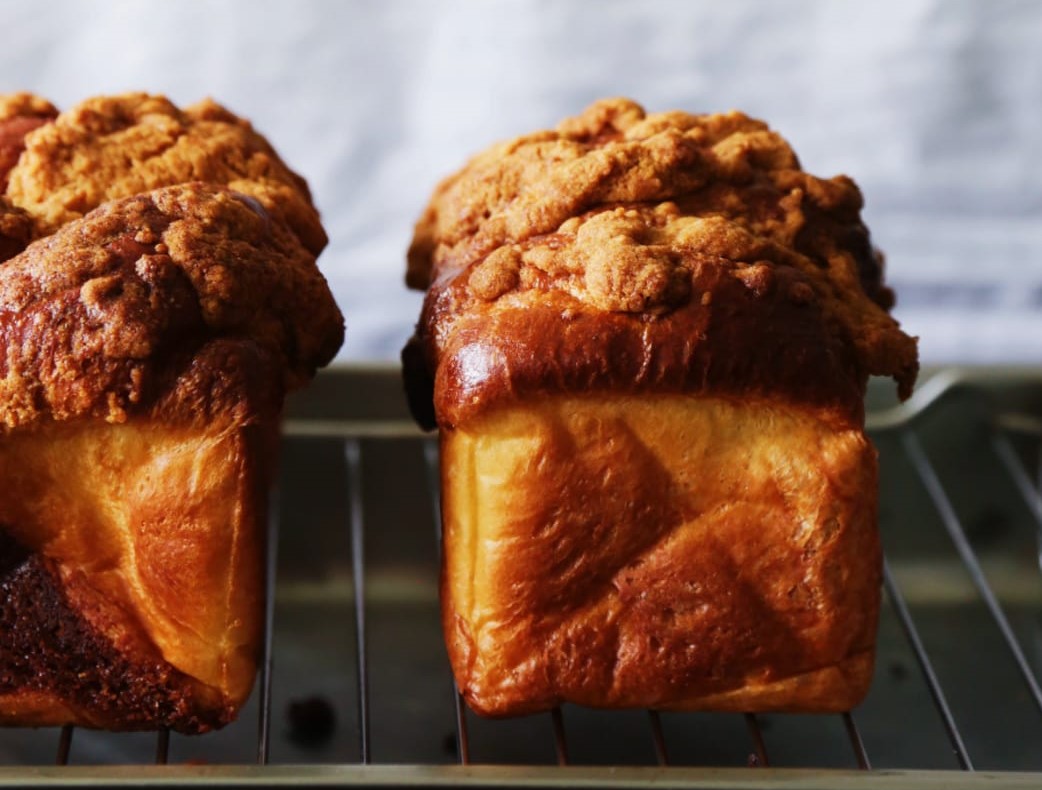
Chan’s beautifully laminated brioche loaves that accompany the coffee drew the attention of a journalist who later wrote an article about her stall. A home baker since her university days, offering fresh bread was a natural choice for Chan.
In August, when Covid-19 restrictions eased, she made a bid for a stall at the CBD where she knew there would always be a demand for coffee. That she got exactly what she wanted, Chan believed, was God’s providence.
“If you look at how hawker stalls are gotten, it’s like getting a BTO. Only a few are released every month and you never know how much to bid to win the tender.
“It just so happened that one for a drink stall at the Amoy Street hawker centre came up. If I hadn’t gotten it, who knows how long before another one for a drink stall would appear in that area again.”
“I wanted something simple with a lower barrier of entry. “
Since Mad Roaster opened three months ago, Chan has seen more blessings. A journalist came across her stall and wrote about it. Other articles followed and the publicity drew customers as well as help. They now sell 100 cups of brew a day and have broken even.
“Two people who read about us volunteered their help for free. I insisted on paying but it was nice that they even offered.”
Now, Chan has two part-time staff. Her parents, who were initially “quite taken aback” when she told them of her plans to work with refugees in Thailand, also chip in to help. Her father, James Chan, 58, a retired electrical engineer and coffee aficionado, works at the stall almost every day.
The business which Chan put S$20,000 in to start now sustains 11 refugees recommended to her by organisations in Thailand.
“We chose stickers and labels (as work for the refugees) because many of them have limited skills. Some have never even seen electricity before.
“They tell me, ‘My whole village has only one light bulb’. So, I wanted something simple with a lower barrier of entry.
The labels and stickers are printed in Thailand then given to the refugees to colour before being sent to Singapore. Their stories are included in the packaging because “it is the advocacy part of things so that people in Singapore know that refugees exist”.
Long days, hopeful future
Though Mad Roaster opens at eight, Chan’s day begins at six at the stall and ends long after it closes at three in the afternoon. Brioche, a bread rich in butter and eggs, takes plenty of effort to make. It requires two proofs – when the dough is left to rest and rise – before it can be baked.
“If I need a loaf on Monday, I have to start on Saturday before I can bake it on Sunday evening at a studio I rent.”
For now, two types of bread – cinnamon brioche and chocolate babka – are offered in rotation. The chocolate slices come topped with custard and chocolate crumble all made from scratch.
“It’s great to support 11 but it would be great to support more.”
To supplement the business, Chan works as a part-time lawyer.
“It started during the Circuit Breaker. I was already paying the refugees for the work when the stall hadn’t started and nothing was coming in because I had already told them I would do this.
“A lawyer friend of mine asked me to help out at his firm doing corporate litigation. My bosses are very understanding.”
For Chan, Mad Roaster is not just a project for the moment.
“It’s a different road and it can be isolating because up till recently, no one really understood. I have had to trust that it was going to be provided for by God.
“The feeling that drives me forward is the knowledge that there is no turning back now that I’ve seen people hurting. It’s like seeing someone you love in pain. You can’t wait. You just have to share their pain now.
“The end goal is to scale because it’s great to support 11, but it would be great to support more.”
RELATED STORIES:
Break my heart, Lord, for what breaks yours: Refugees, missions and you
We are an independent, non-profit organisation that relies on the generosity of our readers, such as yourself, to continue serving the kingdom. Every dollar donated goes directly back into our editorial coverage.
Would you consider partnering with us in our kingdom work by supporting us financially, either as a one-off donation, or a recurring pledge?
Support Salt&Light
